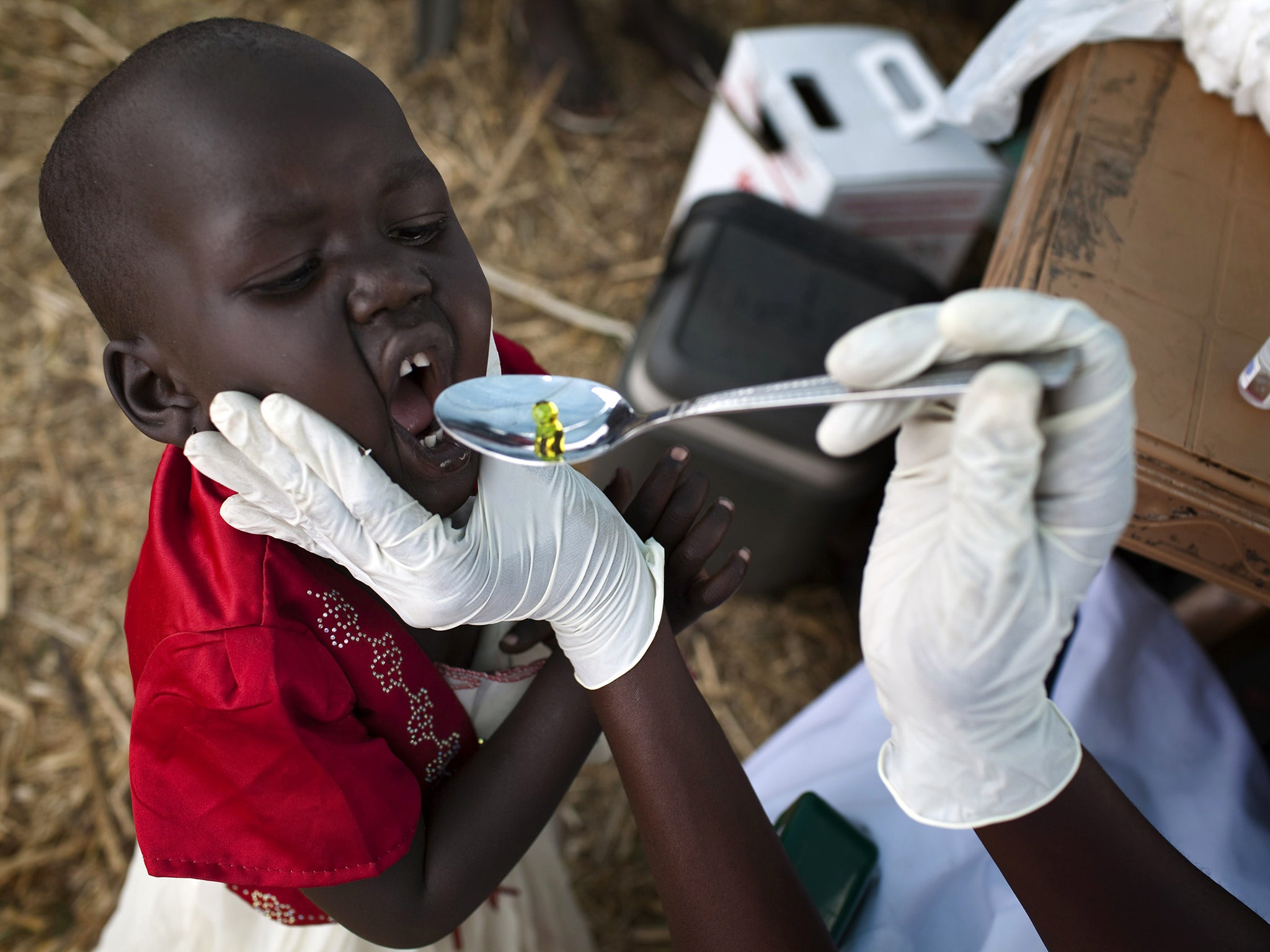IMF cuts blamed for weak response to Ebola
The IMF has faced regular criticism for requiring developing countries to adopt austere free-market policies

Your support helps us to tell the story
From reproductive rights to climate change to Big Tech, The Independent is on the ground when the story is developing. Whether it's investigating the financials of Elon Musk's pro-Trump PAC or producing our latest documentary, 'The A Word', which shines a light on the American women fighting for reproductive rights, we know how important it is to parse out the facts from the messaging.
At such a critical moment in US history, we need reporters on the ground. Your donation allows us to keep sending journalists to speak to both sides of the story.
The Independent is trusted by Americans across the entire political spectrum. And unlike many other quality news outlets, we choose not to lock Americans out of our reporting and analysis with paywalls. We believe quality journalism should be available to everyone, paid for by those who can afford it.
Your support makes all the difference.The International Monetary Fund has been accused of exacerbating the Ebola crisis by pressuring West African governments to reduce healthcare spending.
Policies pushed by the IMF, including limits on government spending and public-sector wage bills, left Guinea, Liberia and Sierra Leone unable to combat the virus effectively, according to Cambridge University researchers.
“A major reason why the Ebola outbreak spread so rapidly was the weakness of healthcare systems in the region,” said Cambridge sociologist Alexander Kentikelenis, lead author of a paper in the journal Lancet Global Health. “Policies advocated by the IMF have contributed to underfunded, insufficiently staffed and poorly prepared health systems in the countries with Ebola outbreaks.”
The IMF has faced regular criticism for requiring developing countries to adopt austere free-market policies as a condition of receiving loans and financial aid.
The authors of the Lancet study claim that policies attached to IMF lending programmes in West Africa between 1990 and 2014 led to the weakening of already fragile healthcare systems.
An IMF spokesman said the researchers’ claims were “completely untrue”, adding that “since 2009, loans from the IMF to low-income countries have been at zero interest rates”, freeing up spending “on health and education”.
Last month, the IMF announced £190m in extra funding to fight Ebola in Guinea, Liberia and Sierra Leone.
Join our commenting forum
Join thought-provoking conversations, follow other Independent readers and see their replies
Comments